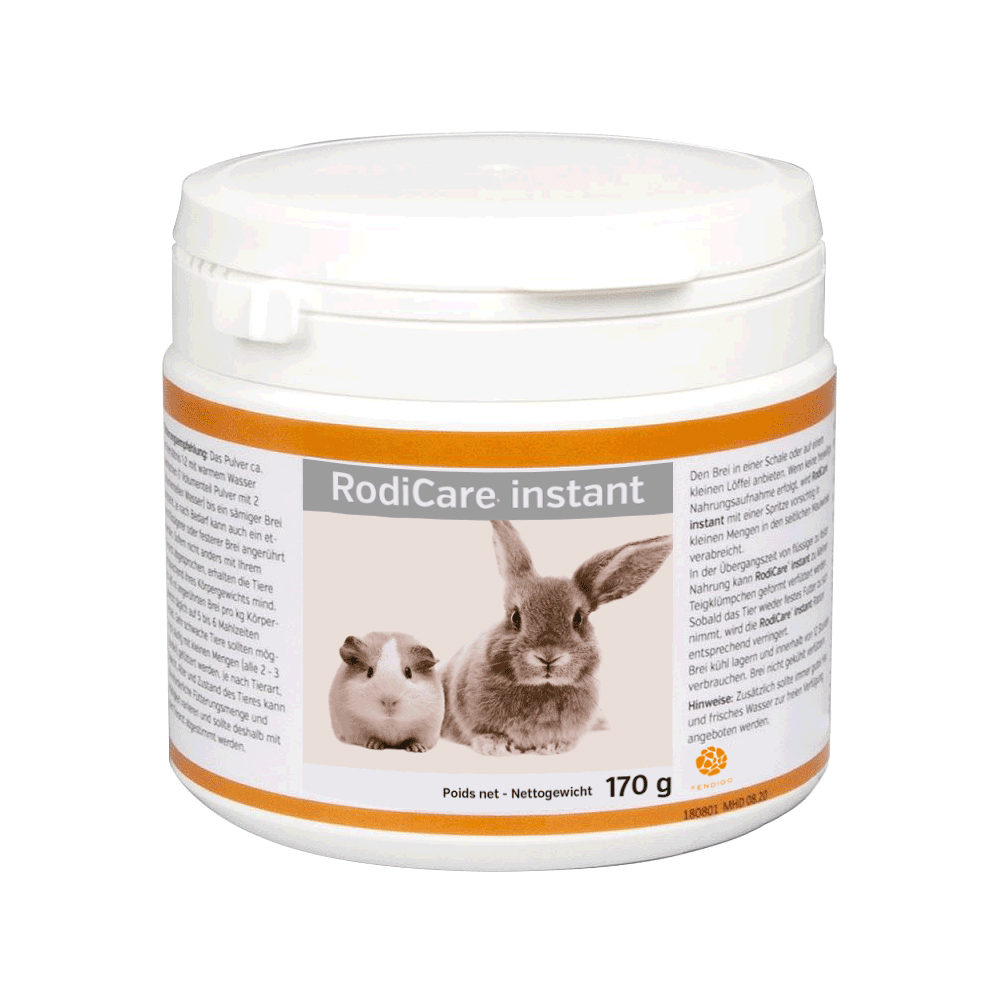Rodents and herbivores should never go without food for long. Their digestion must keep moving continuously and can come to a halt in a short time, which can have serious consequences. For other rodents, such as hamsters, mice, rats, and gerbils, not eating is also always a clear sign that something is wrong, and the animal can weaken quickly. When this happens, it is important to act immediately. In addition to contacting your veterinarian, recovery feed can then be a solution.
What is recovery feed?
Recovery feed is a powdered food that can easily be mixed with lukewarm water. The resulting liquid porridge can be offered in a bowl if your animal still eats on its own, or carefully administered with a feeding syringe when necessary. Recovery feed contains not only essential vitamins and minerals but also a high amount of fibre, ensuring that intestinal function is optimally supported. This way, your rodent still receives the right nutrients and the intestines remain active.
Choosing the right variant
It is important to choose recovery feed that matches the species you have. Most variants are developed for herbivores, such as guinea pigs and degus, because these animals depend on a fibre-rich diet. For birds or small omnivores, there are specific types of recovery feed that better suit their nutritional needs.
Always pay close attention to the recommended species on the packaging. This way, you can be sure that your animal receives the right balance of fibres, vitamins, and minerals during recovery.
When should you NOT give recovery feed?
It can be useful to always have recovery feed at home so you can start feeding immediately if needed. But there are also situations where you should be cautious or avoid giving it altogether, such as:
- In case of intestinal blockage: recovery feed can make the situation worse. Feeding may then be painful and even dangerous.
- When your rodent cannot swallow or is at risk of choking: for example, in cases of severe weakness or a neurological problem. The food could then enter the airways.
- When the cause of not eating is unknown: if you don’t know why your rodent stopped eating, it is always wise to contact your veterinarian first. Sometimes the underlying problem is serious (such as dental issues, gas, or pain), requiring proper treatment.
- Without the right diagnosis: most recovery feeds are tailored to herbivores (plant eaters). For animals with different dietary needs, it may be unsuitable.
Recovery feed is intended as temporary support, not as a substitute for a veterinary visit. Does your animal continue to refuse food or show signs of pain, bloating, or lethargy? Always contact a veterinarian immediately.







